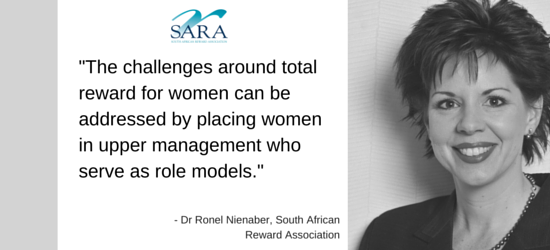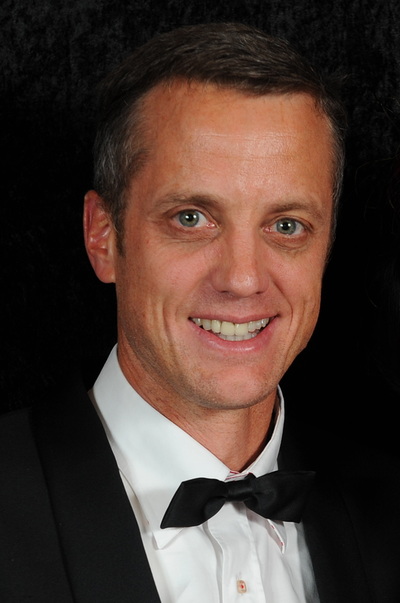The economy is battling some severe headwinds. In a volatile environment such as this, getting reward structures right is a critical test for reward professionals. By Dr Mark Bussin, Executive Committee Member, South African Reward Association (SARA) and Chairman of 21st Century We all know that our country and its economy face enormous challenges at present. As reward professionals, we need to face the fact that these headwinds are creating a highly combustible environment across society and within companies as well. How a company rewards its employees has become one of the flashpoints in this environment—a great risk but also a great opportunity for the reward professional.
Get it wrong, and we can fan the flames of resentment into an inferno; get it right, and we can help create a corporate culture based on performance. Let’s just remind ourselves of what these headwinds actually are, and why they make reward policies such a critical corporate issue. Perhaps the most significant is that the economy is now officially not going to grow at all this year, which will greatly exacerbate the already high levels of unemployment. According to the Organisation for Economic Cooperation and Development (OECD), South Africa has an unemployment rate of 25.4 percent, the worst of all the countries they list—and I think the figure is actually higher. This creates a situation of huge inequality in the country, something that creates social instability. The same is true within companies, where the gap between what executives and lower paid employees receive is large and growing. The effect on corporate culture is devastating. The most toxic ingredient of this witches’ brew has to be inflation, which has been eating into the value of everybody’s salaries but, of course, hitting the lowest earners hardest. Our official rate of inflation is 6 percent but that does not reflect the reality of the man in the street—food and transport inflation, two of the biggest items in his or her basket, have been growing much faster. For many people, inflation is much, much higher than 6 percent. In other words, somebody who has been getting a CPI-linked raise every year is having the actual spending power eroded quite dramatically. In the Internet Age, in which transparency is a standard of governance, the mere fact that the CEO is earning millions in options and bonuses eats like acid into peoples’ minds. Equally important, companies, like nations, need great leaders to be successful. CEOs and other executives carry an enormous burden of responsibility and expectation and the new Companies Act makes them personally liable for any decisions that go wrong. All of these factors mean they can and do command very high rewards. Against this backdrop, it is clear that reward professionals have their work cut out to create a reward structure that properly incentivises everybody in the company—but it’s never been more important to get it right. There are many issues to be considered, but these must be the top five: Improve your business acumen You need to understand how the business works in order to create the right structure. And, in these times, it has to be done without just spending lots of money. Focus on the long term Ensure that pay for performance schemes are closely linked to the company’s actual performance—with a focus on the long term. Too often, executives take decisions that have negative long-term consequences in order to meet short-term targets. For example, reducing head count may help meet cost-reduction goals but jeopardise the company’s sustainability. Be on top of the effect of inflation on lower level employees Get a good fix on the salaries at the bottom of the pay scale, and the effect of inflation on these employees. As noted above, one has to be realistic about what inflation actually is, which means considering what these people spend their money on. Because this is not happening, we are seeing more and more of what I call “in-work poverty”—people whose salaries do not allow them to live decently. Work on a strategy to reduce inequality within the company As I have argued, inequality is dangerous. Reward professionals should play a leading role in helping to reduce it within the corporate environment. Make sure the optics work By this I mean that the focus should not be on what is legal, but what makes sense—or looks good—to all stakeholders. One of the key elements here will be to communicate the rationale behind the reward structure and what those who receive high rewards did to improve the company’s performance. ENDS MEDIA CONTACT: Cathlen Fourie, 012 644 2833, [email protected], www.atthatpoint.co.za For more information on SARA please visit: Website: www.sara.co.za Twitter: @SA_reward LinkedIn: South African Reward Association Facebook: SARA – South African Reward Association
0 Comments
It often takes a female leader to break the patterns and start the process of change, creating a culture that is progressive and aware. Businesses that adopt a progressive attitude are more likely to offer mentoring programmes that are designed to increase female career development. Gender bias and relatively fewer opportunities for women mean that often the total rewards offered aren’t one at all.
“Total rewards are defined as the combination of all types of rewards, including financial and non-financial, that are made available by employers to employees,” explains Dr Ronel Nienaber, Exco member of the South African Reward Association (SARA). “There are not enough women in leadership positions to be role models and provide others with a map to success,” says Nienaber. “Although many women achieve lower and middle management positions, they seem to hit that glass ceiling and appear to be denied the most senior levels of upper management.” Nienaber believes there are multiple reasons for this: some women lack the confidence to apply for senior positions, they are less assertive in terms of communicating career aspirations, they lack the necessary education and training and there are fewer women in leadership positions who can provide mentorship and coaching. “Also, the demands on time that come with more senior roles are often not attractive to women, or they face systemic gender bias which puts them off from fighting for top management positions,” says Nienaber. Overcoming the challenges “The challenges around total reward for women can be addressed by placing women in upper management who serve as role models,” says Nienaber. “Also, the move towards increased focus on these issues and transparency will certainly ensure more reporting is done, but whether it will eliminate gender-based pay inequalities is questionable.” “If an organisation has sufficient representation of women at senior levels, do what is necessary to bring about true change,” says Nienaber. “Conduct primary research to uncover what women’s unique needs and preferences are and work relentlessly towards implementing new policies, procedures and training/education that provide equal opportunities for men and women across all race and gender groups.” There needs to be awareness on all sides to address the problems and ignite change. Women need to understand the business environment, be confident about the challenges it presents and be authoritative when required. They have to recognise, and be true to, their own leadership styles and spend time coaching and mentoring younger women, giving them the tools they need to navigate the corporate landscape. True change requires that all types of bias are recognised and redressed, that all employees are working towards the same goal and that everyone feels empowered to reach their true potential. In a country that battles with the after effects of apartheid, employers should be actively engaging in efforts to reduce the wage gap, address fair and equal employment and ensure skills development and reward practices that will, in turn, increase return on investment and improve the organisation’s Employee Value Proposition. ENDS MEDIA CONTACT: Cathlen Fourie, 012 644 2833, [email protected], www.atthatpoint.co.za For more information on SARA please visit: Website: www.sara.co.za Twitter: @SA_reward LinkedIn: South African Reward Association Facebook: SARA – South African Reward Association The recent WorldatWork® feedback event hosted by the South African Reward Association (SARA) placed the changing demands of the dynamic workforce into sharp focus. Employers are under pressure to recognise the impact of human behaviour on their strategic objectives and adopt a ‘Total Rewards Model’.
“A ‘Total Rewards Model’ is aimed at attracting, retaining, motivating and engaging the best possible employees by offering more than an attractive remuneration package,” explains Yolanda Sedlmaier, SARA Exco member. Most organisations listed on the Johannesburg Stock Exchange are corporate members of SARA that has, since its inception in 1997, promoted and developed the reward profession well beyond the concept of remuneration. According to Sedlmaier “higher employee satisfaction is proven to deliver superior operational, customer and financial outcomes. The areas of consideration in compiling offers of employment need to include compensation, benefits, work-life effectiveness, recognition, performance management and talent development.” Start with what employees want During the feedback event, Wayne MacFarlane, head of Human Capital Policies at Standard Bank, highlighted key discussion points from Aon Hewitt’s presentation titled “Inside the Employee Mindset”. Employees want to feel appreciated for their efforts and successes, and prefer to work for a humanistic company where they can develop and cultivate relationships. At the top of their wish lists are: employee recognition, respect, loyalty, home and work balance, open communication, fairness, honesty and trust. This is in sharp contrast to the traditional focus areas of business, namely: customer satisfaction, profit, quality, brand image, profitability, cost reduction and financial stability, long hours and bureaucracy. Total Rewards 2020: What to expect in the next five years The next five years are likely to see a shift in the way that reward programmes are structured and shared with employees, allowing for a more sustainable and flexible strategy that is to the benefit of all. Elize van Biljon, Key Account Manager at PwC Research Services (Pty) Ltd, shared Mercer’s seven predictions for 2020 total rewards: 1. Total rewards will be customised for each employee 2. Employees will have more risk through incentive compensation 3. Employer sponsored benefits will become less prominent 4. Performance ratings will not have disappeared 5. The workforce will have more contingent workers than today 6. Increased workplace flexibility will be the norm 7. All pay will be transparent and pay disparity will not have decreased How will organisations respond to predicted changes? Minda Botha, REMeasure Manager at PwC on job evaluation, warned that the unquestioned loyalty that previous generations have shown their employer is a thing of the past. Botha also shared a few tips on what employers can do to prepare and manage total rewards to keep employees satisfied: • Use data and analytics to get to know patterns of past behaviour so as to predict and prepare for the changes that will be necessary in your own organisation. • Understand the internal labour market to inform workforce planning. The biggest reason why employees resign is usually career progression. Individual career planning - rather than generic functional level plans - is therefore of utmost importance. • Develop a ‘Total Rewards Strategy’ by considering compensation, benefits and careers across all focus areas of reward. This can include cost, employer needs, employee needs and external perspectives. It has become an art form to attract, retain and engage employees from all levels within the organisation. Reward professionals who are responsible for the design, development and implementation of reward strategies, policies and processes in the business and who ensure that these will support organisational objectives, are in possession of critical skills. They can potentially transform the employer/employee relationship and support the organisation’s goals going forward. To date 150 SARA members have achieved a professional reward designation and an increasing number of employers are starting to include a professional reward designation as a requirement during their recruitment processes. Those companies in South Africa that have already made great strides towards adopting a Total Rewards Model are celebrated annually at the SARA Reward Awards Banquet. Entries for this year’s awards close on 17 August 2015 and more information is available from www.sara.co.za ENDS MEDIA CONTACT: Cathlen Fourie, 012 644 2833, [email protected], www.atthatpoint.co.za For more information on SARA please visit: Website: www.sara.co.za Twitter: @SA_reward LinkedIn: South African Reward Association Facebook: SARA – South African Reward Association |
Archives
March 2023
Welcome to the South African Reward Association newsroom.
Categories
All
|






 RSS Feed
RSS Feed